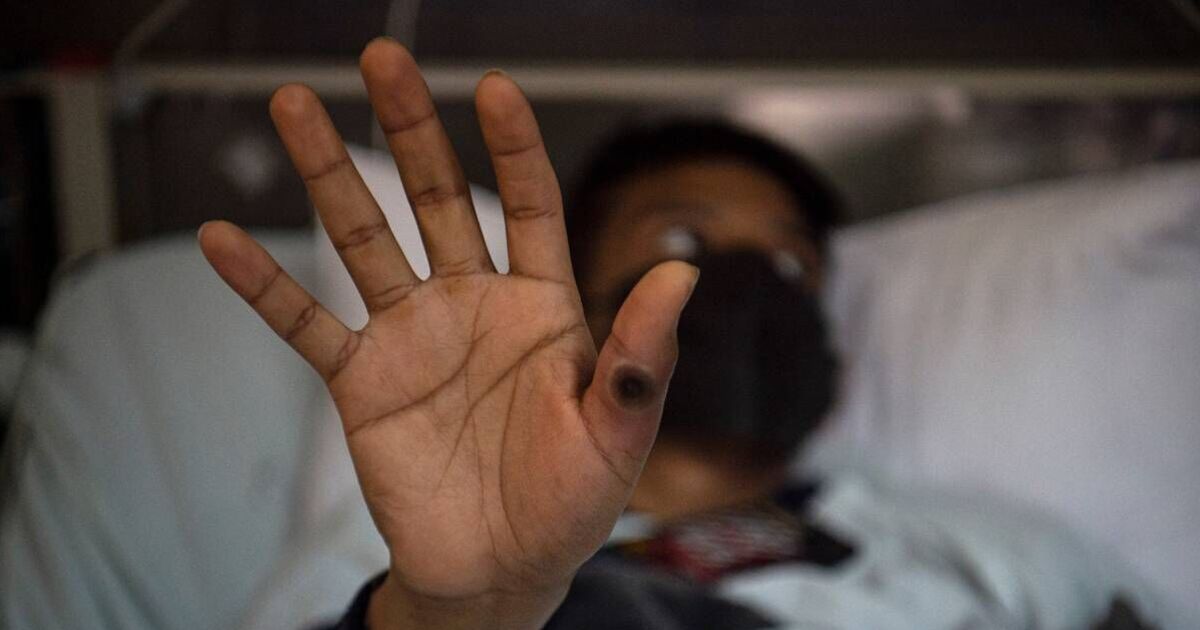The World Health Organization has declared the mpox outbreaks in Congo and other African regions a global emergency, necessitating immediate action to halt the virus’s spread.
Sweden has reported its first case of a new strain of mpox, previously confined to Africa, in a traveller. As a result, health authorities across Europe are preparing for more cases arriving from abroad.
Experts believe widespread transmission is highly unlikely. Unlike airborne viruses that have caused pandemics like swine flu and COVID-19, which can be spread by asymptomatic individuals, Mpox doesn’t travel through the air as easily.
Mpox, also known as monkeypox, is mainly transmitted through direct skin contact with infected individuals or contaminated items such as clothing or linens. The virus often results in noticeable skin lesions, which may deter close interactions.
For protection, health experts recommend avoiding physical contact with anyone displaying Mpox-like lesions, not sharing personal items such as utensils, clothes, or bedding with them, and practicing good hygiene, including frequent hand-washing, reports the Mirror US.
On Friday, the European Centre for Disease Prevention and Control warned that while more imported mpox cases from Africa are “highly likely,” the likelihood of significant outbreaks within Europe remains minimal.
Researchers maintain that the risk to the general public in countries not currently experiencing mpox outbreaks is minimal.
The spread of Mpox is significantly slower compared to the rapid transmission of coronavirus. After the emergence of coronavirus in China, it escalated from a few hundred to thousands of cases; in just one week of January, the numbers surged by more than tenfold.
By March 2020, when the World Health Organisation (WHO) declared COVID-19 a pandemic, over 126,000 people were infected and 4,600 had died, only about three months since the virus was first detected. In contrast, it has taken since 2022 for Mpox to approach 100,000 infections worldwide, with around 200 deaths, according to WHO reports.
Unlike the early days of COVID-19, there are now vaccines and treatments available for Mpox. “We have what we need to stop mpox,” Dr. Chris Beyrer of Duke University’s Global Health Institute confidently stated.
“This is not the same situation we faced during COVID when there was no vaccine and no antivirals.”
The future course of Mpox remains uncertain. The 2022 outbreak that affected over 70 countries was quickly contained within months, largely due to vaccination efforts and medications available to high-risk groups in wealthier nations.
At present, most Mpox cases are in Africa, with Congo accounting for 96% of these cases and fatalities. Congo, one of the poorest nations with a health system overwhelmed by malnutrition, cholera, and measles, has yet to receive any of the 4 million vaccines it requested from international donors.
Despite the World Health Organization declaring Mpox a global emergency in 2022, Africa received hardly any vaccines or treatments.
Beyrer from Duke University has emphasised the global importance of investing in controlling the outbreaks in Africa. “We are actually in a good place to get control of this pandemic, but we have to make the decision to prioritize Africa,” he stated.










